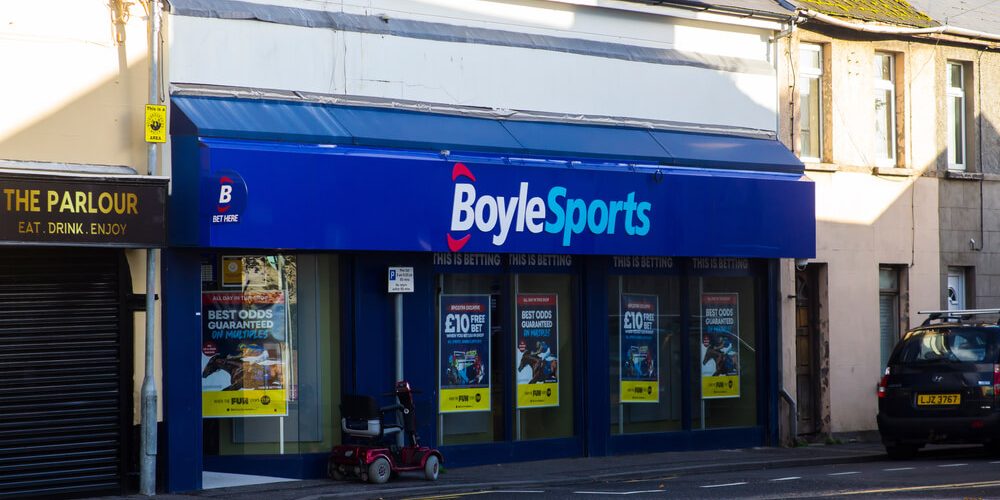Gambling has a long and colorful history in Ireland. The Betting Act of 1926, which was eventually repealed by the Betting Act of 1931, regulated all forms of sports and betting activities. Then the Gaming and Lotteries Act of 1956 came along which made it illegal to operate a commercial casino in Ireland.
As big a change as that was, it wasn’t sealed tight enough as wiggle room existed that led to the creation of what was commonly called private members clubs. These clubs were established by various business owners across the country and were what Americans would refer to as mini-casinos. That was because the private member’s clubs featured slot machines, video poker, poker games, blackjack, and other casino-type activities.
There were 14 of these clubs still in operation in 2020 with most of them centered in the Dublin area. As the name implies, a membership is required to participate and as the clubs technically do not violate the 1956 Gaming and Lotteries Act, it is legal to play the casino games in these establishments for real money.
Attempts Have Been Made To Legalize Casino Gambling
The Gambling Control Bill of 2013 was introduced as a mechanism to overhaul all of Ireland’s outdated gambling laws. The main thrust of this bill was to regulate the majority of Ireland’s gambling activity by a single piece of legislation. That bill still waits to be passed by lawmakers and there is no timeline in place. In 2018, the Irish Gambling Control Bill was introduced. It contained several updates to gambling industry activity since the 2013 bill.
The goal of the newer proposed legislation is to control and monitor all kinds of gambling venues ranging from land-based to online. This would affect just the gambling sites that offer services and products in Ireland. The bill would also be responsible for creating the Office of Gambling Control Ireland (OGCI) which would be the regulatory body. In addition to licensing and tracking all gambling venues, the OGCI would be tasked to ensure players were treated fairly, and that vulnerable groups such as children would be protected.
The Gambling Control Bill of 2013 Also Includes Several Limits
Probably the most significant part of the proposed law is the limits it has in place for the number of brick-and-mortar gambling facilities. The bill has a provision that would permit no more than 40 licenses for all of Ireland. Plus, there is nothing that allows for the establishment of a super casino. In addition to the 40 license limit, the bill controls the number of table games and gaming machines permitted in each of those 40 venues.
There is a top limit of 15 tables and 25 gaming machines. As for betting on horses and greyhounds is concerned, that would be regulated by another governing body – Horse Racing Ireland. On the upside, should the bill be passed, there would be a total of five different gambling and betting licenses offered through the OGCI. These would include betting, gaming, personal, temporary, and remote license classifications.
Online Gambling Is A Whole Different Matter
It is legal to gamble online in Ireland. Web-based gambling sites have been legalized since 2003 making Ireland one of the first countries to embrace the technology and the growing online gambling industry. The country is also considered one of the most liberal regarding the legalization of online gambling sites. Licenses for online gambling operations are issued by the Irish Government. It is also legal for Irish gamblers to engage in their pastime at both domestically-licensed and legally licensed offshore gambling sites.
At first, there was no tax or guidelines in place for online gambling facilities but that changed in 2012 with the Irish Betting (Amendment) Bill. The goal of this legislation is to fill the gap related to online gambling activity that did not exist in the Betting Act of 1931. Call it an update to address the technology that has come about since the bill was originally drafted and adopted. This opened doors for such things as free spin offers at Betinireland, as an example.
Bookmakers Are One Focus of the Bill
One of the most interesting provisions of the bill concerns bookmakers. There is something called a “remote bookmakers” license that is a requirement for operators to carry if they accept online wagers and generate over 200,000 Euros, or 10% of their total turnover online. This is regardless of the location of the bookmaker – inside or outside of Ireland.
Plus, bookmakers and online casino operators without this form of licensing will be subject to penalties that could include criminal charges. Since 2020, a one percent turnover tax has been implemented on all bets taken from Irish gamblers by retail and remote bookmakers.
There is also a 23 percent value-added tax (VAT) tacked on to any gaming revenue that is supplied to Irish bettors electronically. Online gambling activity within the country may also see an increase in the tax rate, however, the bill has not been passed into law as yet with delays coming from the Irish Minister of Finance.
Final Thoughts
Although most forms of gambling are alive and well in Ireland, not all of them are considered legal and those that are legal have a lot of restrictions added to them.
The only difference is that online gambling is far more relaxed and easier to access than a “private members club.” Bills are being processed that will change the legal gambling landscape within the country, with limitations to provide control and monitoring.
That being said, it isn’t a far reach to speculate that American-style casinos, although scaled down considerably, are a possibility still in Ireland. But until that happens, the internet is filled with viable options that Irish bettors can engage with and have no fear of legal problems provided the sites they visit are licensed by the Irish government.
It’s far from complicated but does require the average Irish gambler to do some homework to say on the right side of the gaming laws.









